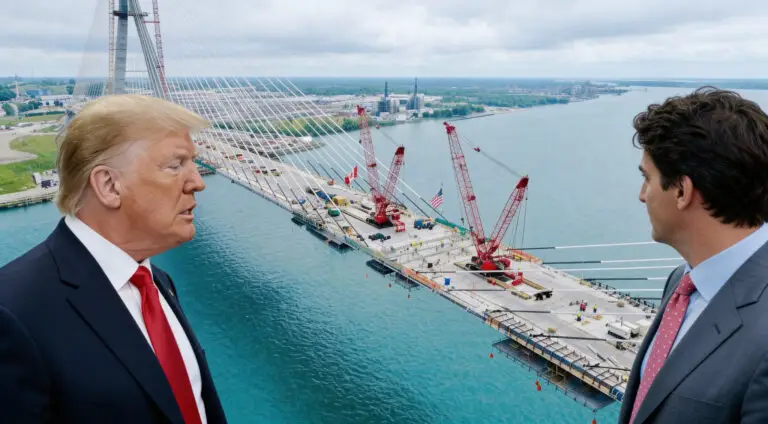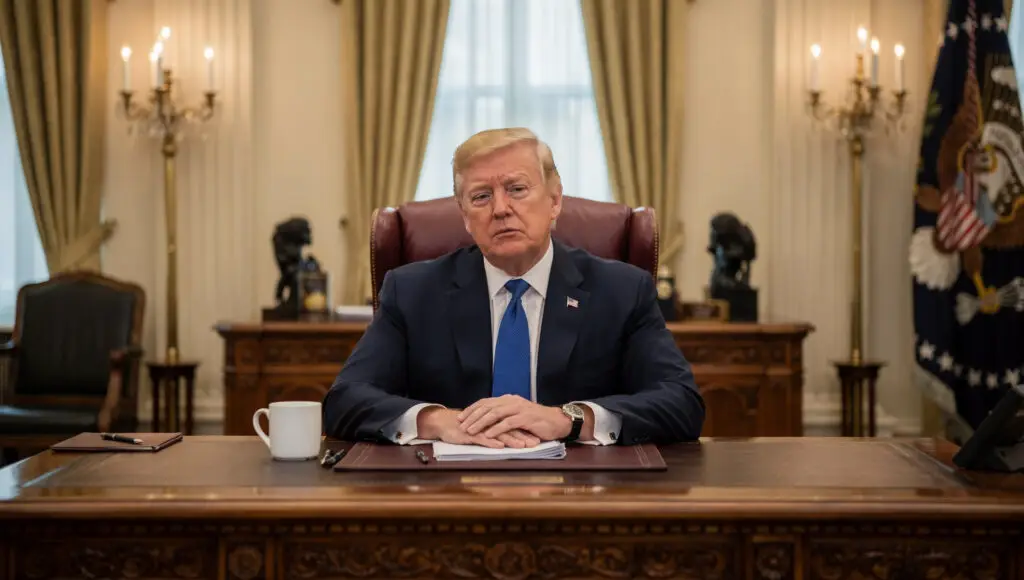Donald Trump’s second term is characterized by an unwavering concentration on tariffs and “Liberation Day,” as he refers to April 2nd, witnessed the implementation of his full-blown promised tariffs. The sweeping measures have set alarm bells ringing around the world with regard to price inflation and economic turbulence, especially in the UK.
Understanding Tariffs: A Tax on Imports
Tariffs are defined simply as a tax on products and services imported into the borders of a country. For the US, such tariffs are paid by American businesses bringing goods into the country. The intended objective is to guard local industries and create employment opportunities by making cheap foreign goods less appealing. However, this is a gradual process, as firms have to put in place the means for production.
In addition, there is a clear and direct effect on consumers as well. To recover the increased expense, companies will most likely increase their prices, resulting in a higher cost of living. cheaper foreign goods. Tariffs can also work against foreign countries by increasing prices for their goods.
On “Liberation Day,” Trump proclaimed a 10% basal tariff on all imports with an extra layer of “reciprocal” tariffs on 60 countries categorized as unfair traders. Such reciprocal tariffs aim to level the playing ground of tariffs placed on the US and other countries.
Some highlighted tariffs include 34% on China, 20% on the EU, 26% on India, 10% on the UK, and Australia. Japan faces the brunt of a 24% reciprocal tariff. The April 5th baseline tariffs initiation was promptly followed by reciprocal tariffs for the “worst offenders” on April 9th. Canada and Mexico, though exempt from the reciprocal tariffs, bear existing 25% tariffs.
Preceding “Liberation Day,” the Trump government enforced multiple tariffs, such as a 25% tax on imported cars, a 25% tax on steel and aluminum, and 20% on imports coming from China.
The UK’s Reaction: Negotiations and National Security
UK Opposition Party Leader Sir Keir Starmer made it clear on his end that in response to Trump’s announcement, the UK government has moved “into the next stage of our plan” after the unsuccessful negotiations with the US. Furthermore, he made sure to highlight that the “national interest” would guide any such decisions.
Business and Trade Secretary Jonathan Reynolds expressed his dismay but added the UK would continue its efforts to negotiate a trade deal with the US. He did note, however, that the UK had “a range of tools at our disposal” and “would not hesitate to act” in defense of those interests.
Repercussions for the UK: Car Industry and Economic Buffer Zone
The 25% car tariff may pose the greatest danger to the UK car industry for they currently hold the largest share of exports, with the US being the world’s single largest export market. Further studies estimate that more than 25,000 jobs associated with UK car manufacturing may be in jeopardy.
In addition, the UK’s economic growth rate and the “headroom” in public spending are under threat as well. OBR’s David Miles warned that the US’s sustained 20% or 25% tariffs would eliminate the headroom in fiscal policy that the government has accrued.
With that being said, a “very limited tariff war” not including the UK may benefit the country in the short term, as some form of redirected trade could provide minor advantages for the UK economy.
Worldwide Response: China and the EU Strike Back
In retaliation to Trump’s tariffs, China placed a 34% tariff on all American goods starting April 10th. Chen Wenling, a Chinese government official, criticized America’s approach as “out of line with the principles of international trade.”
The European Commission has also planned a counteroffensive. Ursula von der Leyen, the European Commission’s president, warned about “dire consequences” to Trump’s tariffs on the economy. The European Union is currently taking steps to find solutions for the additional taxes the US placed.
Trump’s assaulting policies of tariffs have gained a significant amount of leverage in reshaping global trade, something his administration handles with an iron fist.
The “reciprocal” fees, according to Trump, promote the job market and increase revenue in the United States. Despite his claims, the world is left lashing out every time he speaks. A central worry about a potential global trade war accompanied by consequences for the economy keeps peeking its head every time Trump’s approach is under scrutiny.













